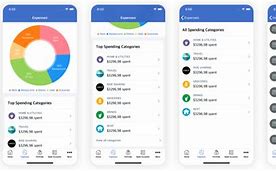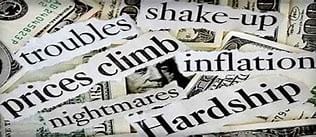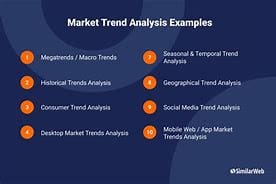Best Budgeting Apps for Mobile


That’s where budgeting apps come in, offering a lifeline for financial sanity. But with so many choices out there, how do you pick the right app to fit your needs? Don’t worry, we’re here to help.
This article dives into the top budget apps for mobile phones. We’ll examine their features, pricing, user experience & how they stack up against each other. Whether you’re a complete newbie to budgeting or a seasoned saver, you’ll find an app that’s tailored to your needs.
So grab your smartphone & let’s embark on this journey towards financial freedom!
This list features some of the best-in-class budgeting apps with varying specialties. Whether you prioritize tracking every cent, automating your savings, or simply need an easy-to-use tool, these options have got you covered.
Taking Control of Your Finances: Best Budgeting Apps for Mobile
In today’s digital age, managing your finances has never been easier. With the rise of mobile budgeting apps, you can take control of your money from the palm of your hand. But with so many options available, how do you choose the right budgeting app for your needs? Let’s dive into the world of budgeting apps and discover the best ones for mobile.
What are Budgeting Apps?
Budgeting apps are digital tools that help you track your income, expenses, and financial goals. They can also provide insights into your spending habits, helping you identify areas where you can save money. Essentially, these apps are like personal finance assistants, guiding you towards a more secure and prosperous financial future.
How do they work?
Most budgeting apps work by connecting to your bank accounts. They then automatically track your transactions, categorizing them by spending type (e.g., groceries, entertainment, bills). You can manually add transactions too, so you have a complete picture of your financial activity.
What are the benefits of using a budgeting app?
- Increased Financial Awareness: Budgeting apps help you stay on top of your spending, giving you a clear view of where your money goes.
- Improved Budgeting: They can help you create and stick to a budget, preventing overspending and setting you up for financial success.
- Achieve Financial Goals: Whether it’s saving for a down payment, paying off debt, or investing, budgeting apps can provide the tools to achieve your financial goals.
- Track Your Progress: Many apps offer charts and graphs, allowing you to visualize your progress towards your financial goals.
- Time-Saving: Budgeting apps automate much of the tracking and analysis, saving you time and effort.
Choosing the Right Budgeting App for You
The best budgeting app for you depends on your individual needs and preferences. Here are some factors to consider:
What features should you look for in a budgeting app?
- Bank Account Connections: Choose an app that seamlessly connects to your bank accounts for automated transaction tracking.
- Budgeting Methods: Some apps use traditional budgeting methods, while others offer more flexible approaches like zero-based budgeting.
- Goal Setting: Look for features that allow you to set and track financial goals.
- Spending Analysis: Choose an app that provides insightful spending reports and categories.
- Debt Management Tools: Some apps have features to help you track and manage your debt.
- Investing Features: If you’re interested in investing, consider apps that offer investment tracking and advice.
- User Interface: Look for an app with a user-friendly interface and intuitive design.
- Security: Choose an app that uses strong security measures to protect your financial data.
Budgeting apps for different needs:
- Beginners: Apps like Mint and PocketGuard are great for beginners, offering simple, user-friendly interfaces and basic budgeting features.
- Families: Apps like YNAB and EveryDollar are excellent for families, offering features to manage multiple bank accounts and track shared expenses.
- Debt Management: Apps like Clarity Money and Personal Capital offer tools to help you manage and pay down debt.
- Saving Goals: Apps like YNAB and PocketGuard can help you set and track savings goals for specific financial objectives.
Free vs. Paid budgeting apps
Many budgeting apps offer free versions with basic features. However, paid versions often provide advanced features, like multiple budgeting methods, goal setting tools, and personalized financial advice.
Choosing an app based on your device (Android vs. iOS)
Most budgeting apps are available on both Android and iOS devices, ensuring you have a compatible option regardless of your smartphone.
Top Budgeting Apps in 2023
1. Ynab (You Need a Budget):
- Key features: Zero-based budgeting, goal setting, budgeting for future expenses, debt management tools.
- Pros: Highly customizable, powerful features, helpful community forums.
- Cons: Can be a bit complicated for beginners, requires a paid subscription.
2. Mint:
- Key features: Automatic transaction categorization, spending analysis, goal setting, credit score tracking, bill payment reminders.
- Pros: Free to use, user-friendly interface, robust features.
- Cons: Limited customization, less detail in transaction categorization, data security concerns.
3. Personal Capital:
- Key features: Investment tracking, retirement planning, budgeting, debt management, net worth tracking.
- Pros: Powerful financial management features, free to use, excellent customer support.
- Cons: Focuses more on investment management than detailed budgeting.
4. EveryDollar:
- Key features: Zero-based budgeting, goal setting, debt management, budgeting by category.
- Pros: Simple and straightforward, free to use, strong community support.
- Cons: Limited customization, basic features.
5. PocketGuard:
- Key features: Spending analysis, budgeting, goal setting, in-app savings recommendations, debt management.
- Pros: User-friendly interface, free version with basic features, in-app savings challenges.
- Cons: Limited budgeting features, some features require a paid subscription.
6. Clarity Money:
- Key features: Debt management, spending analysis, credit score monitoring, subscription tracking, bill negotiation.
- Pros: Focuses on debt management, helps you identify and cancel unwanted subscriptions, free to use.
- Cons: Limited budgeting features, not as intuitive for creating and managing budgets.
Tips for Using Budgeting Apps Effectively
Setting up your budgeting app:
- Linking your bank accounts: Connect all your bank accounts to get a complete picture of your financial activity.
- Creating a budget: Use the app to create a budget that aligns with your financial goals.
- Tracking your spending: Monitor your spending and categorize your transactions to identify areas for improvement.
- Setting financial goals: Use the goal-setting features to track your progress towards your financial objectives.
- Reviewing your budget regularly: Review your budget and spending habits on a regular basis to make adjustments as needed.
Budgeting tips for beginners:
- Start small: Don’t try to change everything at once. Start by focusing on a few areas where you can make improvements.
- Track your spending for a month: Gain a better understanding of where your money is going before setting up a budget.
- Set realistic goals: Avoid setting unrealistic goals that are difficult to achieve.
- Be consistent: Stick to your budget and track your progress regularly.
- Celebrate your successes: Acknowledge and reward yourself for your progress, which will motivate you to continue.
Getting Started with Budgeting Apps
How to choose the right budgeting app for you:
- Consider your financial needs and goals.
- Research different apps and compare their features.
- Read reviews and watch tutorials.
- Download and try out a few apps to find one that suits your preferences.
Tips for setting up and using a budgeting app:
- Link all your bank accounts.
- Create a budget based on your income and expenses.
- Categorize your transactions accurately.
- Set financial goals and track your progress.
- Review your budget regularly and make adjustments as needed.
Resources for learning more about budgeting and personal finance:
- Websites: Mint, YNAB, Personal Capital, EveryDollar, PocketGuard, Clarity Money
- Books: “The Total Money Makeover” by Dave Ramsey, “Your Money or Your Life” by Vicki Robin and Joe Dominguez
- Blogs: The Simple Dollar, Budgets Are Sexy, Money Saving Mom
- Podcasts: “Planet Money” by NPR, “The Dave Ramsey Show,” “So Money” with Farnoosh Torabi
Conclusion: Take Control of Your Finances Today!
By utilizing budgeting apps, you can gain control of your finances, make informed financial decisions, and achieve your financial goals. They are powerful tools that can empower you to live a more financially secure and fulfilling life. Don’t wait any longer – choose a budgeting app that suits your needs and start taking control of your money today!
Remember, financial planning is an ongoing process, and there is no one-size-fits-all approach. The key is to find a system that works for you, stick to it, and continue learning and adapting to your changing financial needs. Start your journey towards financial freedom and achieve a brighter future!


